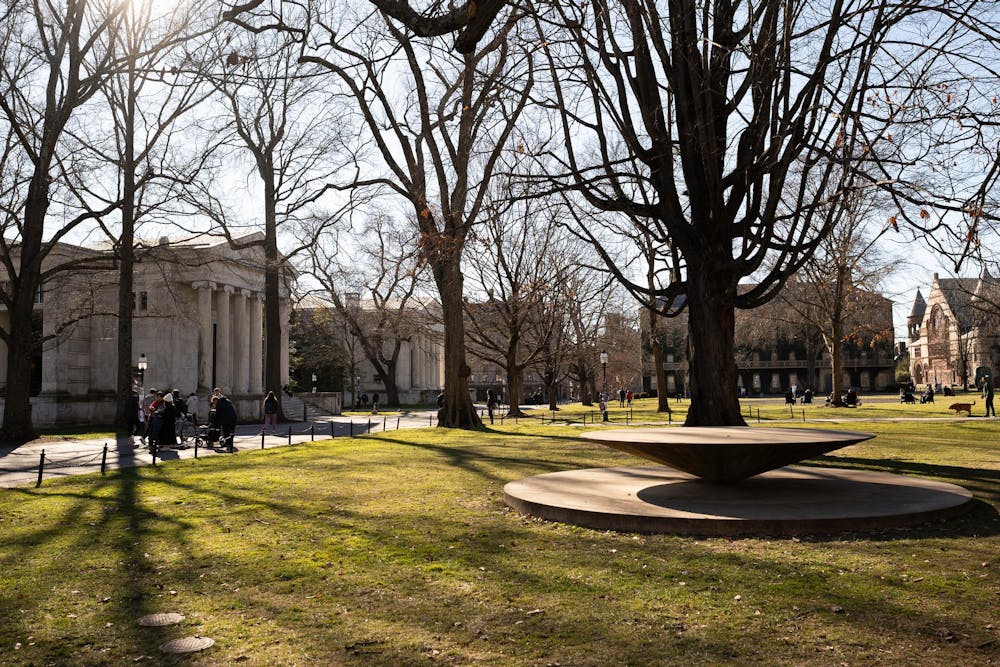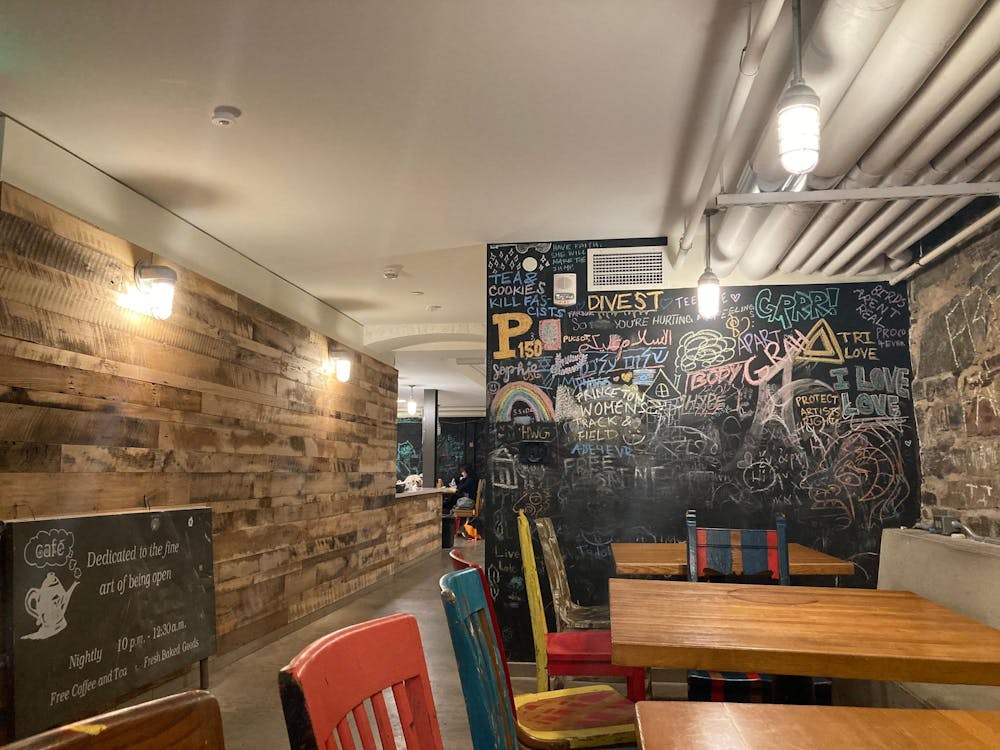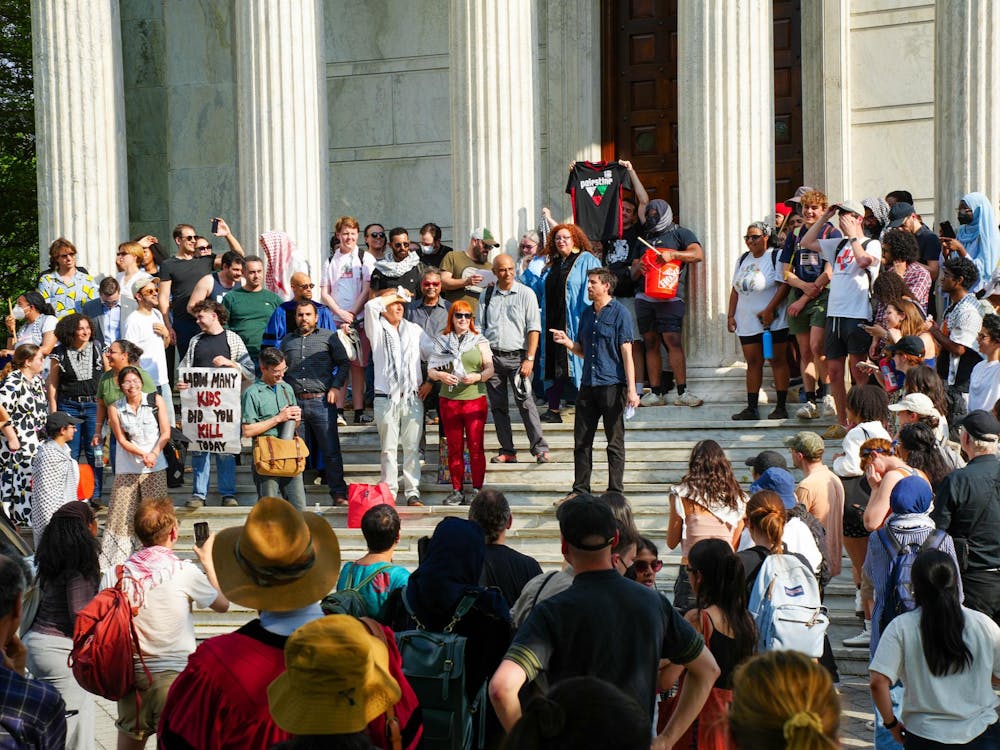Two Princeton University professors, Andrew Appel ’81 and Samuel S.-H. Wang, have testified as expert witnesses in multiple election cases in New Jersey and Pennsylvania this year, including the recent abolition of the county line system in New Jersey.
The county line system places endorsed candidates in a single column or row, which displays them more prominently on primary ballots, as opposed to the block ballot system, which groups candidates by the office they are seeking. The system is unique to New Jersey.
In February, Congressman and Senate hopeful Andy Kim (D-N.J.) and two New Jersey congressional candidates, Sarah Schoengood and Carolyn Rush, filed a lawsuit against New Jersey county clerks. The suit alleges that the county line system, used in 19 out of 21 counties in the state, provides an unfair advantage to candidates backed by county political parties.
On March 18, Appel, a computer science professor and expert on voting machines, testified at a federal hearing on the constitutionality of the New Jersey county line.
On March 29, U.S. District Judge Zahid Quraishi granted the preliminary injunction sought by the plaintiffs, which ordered the use of office block ballots for the June primary to all offices on the Democratic primary ballot. On April 17, the Third Circuit Court of Appeals upheld the District Court’s decision.
Appel, upon request from the plaintiff’s lawyers, testified regarding technical capabilities of New Jersey voting machines. “They anticipated that the defense might say ‘the machines we use now can’t support an office block ballot,’” he said in an interview with The Daily Princetonian. Appel explained that in reality, the machines were capable of switching ballots without any changes made.
“The voting machines used in New Jersey are made by companies that sell voting machines in every state. All the other states use office block, so they programmed the machines to be able to accommodate those ballots,” he told the ‘Prince.’
Along with Appel, Wang also provided expert testimony in the county line case.
Wang, a professor with the Princeton Neuroscience Institute, is the founding director for the Electoral Innovation Lab, which aims “to build a science of data-driven democracy reform using math, law, and practical strategies for change.” He is also the founding director of the Princeton Gerrymandering Project, which works to “bridge the gap between mathematics and the law to achieve fair representation through redistricting reform.”
In February 2022, the New Jersey Redistricting Commission (NJRC) voted to create a new legislative map. Wang, who served as an advisor to the commission’s chair and as its only nonpartisan member, was later accused by some Republicans of manipulating data. In 2022, the University found the allegations of misconduct to be without merit. In September 2023, the New Jersey State Commission of Investigation (SCI) also found no manipulation of data.
Kim, Rush and Schoengood, the candidates who sued, are represented by the legal team for Abolish the Line, an organization working to abolish the county line system. Its members are Yael Bromberg, Flavio L. Komuves, and Brett M. Pugach.
In an interview with the ‘Prince,’ Pugach said that Wang “played a critical role in helping us provide the type of evidence we needed to obtain the preliminary injunction.”

Wang ran statistical analyses on other expert data to establish the unlikelihood of the results being caused by chance. His background in neuroscience and cognition also played a role in the case.
“He was able to help explain a lot of the cognitive behaviors of voters and why different visual cues can direct voters in certain ways that they might otherwise not be directed … he was able to test those hypotheses and help us establish not just that there isn’t an effect there, but what the magnitude of the effect is and why these primary election ballots are so discriminatory,” Pugach said.
Wang declined a request for comment on the county line case.
Beyond the county line, Appel also testified to the Pennsylvania Senate the same day, where he warned against the use of ballot marking devices (BMDs).
BMDs, commonly used in New Jersey and Pennsylvania, are touchscreen machines that voters use to electronically mark a blank ballot. The machine then prints the marked ballot card and inserts it into an optical scanner.
Appel labeled this electronic voting process as susceptible to hacking and malicious influence, recommending a switch to a system of hand-marked paper ballots that are then digitally scanned and rigorously audited after the election.
He highlighted the safeguard of having paper ballots when it comes to the auditing process, which helps to verify the accuracy of the voting machine results. “If you do the audit and you discover the voting machines got it wrong, you have all the paper ballots and can recount those by hand,” Appel said.
Though he made clear that there is no evidence of significant election tampering in the past, Appel emphasized that the risk of BMDs is high going forward and voting machine software is often vulnerable to hacking. “The county elections office has to periodically install software updates,” he said. “How secure are the networks of the voting machine company, which is just a small business, or the county election office?”
Appel’s testimony was arranged following multiple voting machine failures in Pennsylvania that prompted officials to consider how to upgrade their system. As a result of the failures, he said, both Republicans and Democrats were eager to see changes implemented.
Though senators were wary of asking counties to switch equipment in the middle of a major election year, Appel noted that compromise solutions were possible. “They may have more options for voters to choose not to use the ballot marking device and to cast a hand marked paper ballot that will be counted by an optical scanner,” he said.
Reflecting on his testimony and the prospect for change regarding voting security and elections, Appel encouraged students to think about how they can take action.
“Any student that reads this article, if they’re a U.S. citizen, can think about how it is that they voted last time and what they can do to get their county or state to switch to hand-marked paper ballots,” he said.
Michelle Miao is a News contributor for the ‘Prince.’
Olivia Sanchez is an associate News editor for the ‘Prince.’ She is from New Jersey and often covers the graduate school and academic departments.
Please send any corrections to corrections[at]dailyprincetonian.com.









